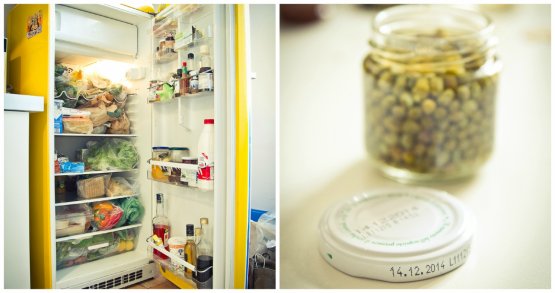What happens to tomatoes left on the plant because their market value is too low? What happens to peaches left in the field because they’re damaged by hail, to biscuits thrown away because there’s a defect in the packaging, to yogurt close to its use-by-date which nobody buys, to the ready made meals left over in the catering industry, to what is left on the plate at the restaurant or at home? Since a few days ago, for all this there’s an alternative to the transformation into waste and the solution is the simplest of all, leading to social and environmental benefits: donation.
A few days ago, with unusually rapid timing, the new Italian law n.166/2016 became effective. This law is avantgarde in Europe and chooses to fight waste not with fines but by giving incentives to recuperating food and donating it. The spirit of the law is clear, just as the intention of member of parliament Maria Chiara Gadda, promoter and signer of the law: reducing waste to zero along all the supply chain and promoting donation to charities and foundations helping people in need as much as possible.

(Photo by Claudia Castaldi)
The beneficiaries of the law are first of all those in need who will receive this food in the shape of meals. But all of us and the environment too will benefit because recuperated and non-wasted food also means consuming less precious resources such as water, air and soil. Resources that are saved twice, as we’ll need them less both to produce food and to dispense of the excessive food.
As Marco Lucchini, general director of the Banco Alimentare foundation said a few weeks ago at a congress on waste, «there’s food for everyone, we just need better distribution». And in order to reach this improved distribution the government has chosen tools such as simplification and de-taxation, which surely will soon give results.
Another new aspect of the law is the donation of edible and well-preserved food confiscated from criminal activities and illegal fishing and hunting. Only days after the law became effective plenty of game, tuna and swordfish was confiscated and donated to charities such as Banco Alimentare so they can transform them into meals for those in need.
How about consumers? There are no obligations nor duties, but there’s the will to support, even financially, activities and apps that can make everyone more sensitive with regards to daily habits when shopping, cooking or eating at home or at the restaurant. Whether you’re a consumer, a cook, an entrepreneur, if you have an idea that can help reduce waste, this is the right time to present it because you might get help to accomplish it.
The law also mentions restaurants, especially in order to promote recuperating leftovers by clients through recyclable and compostable boxes. Yet boxes themselves are not enough, it’s essential that the food taken home is then eaten and not wasted, so that the entire process is not useless. For sure even restaurants can do more to reduce waste, far beyond the problem of leftovers on the plate.
Finally the law also includes recuperating medicines and second hand clothes so that nothing is wasted and everything is recuperated. It truly is an excellent beginning for a change of philosophy in our country. Let’s use this input to change some bad habits, to innovate, create new business opportunities and become more helpful and sustainable.